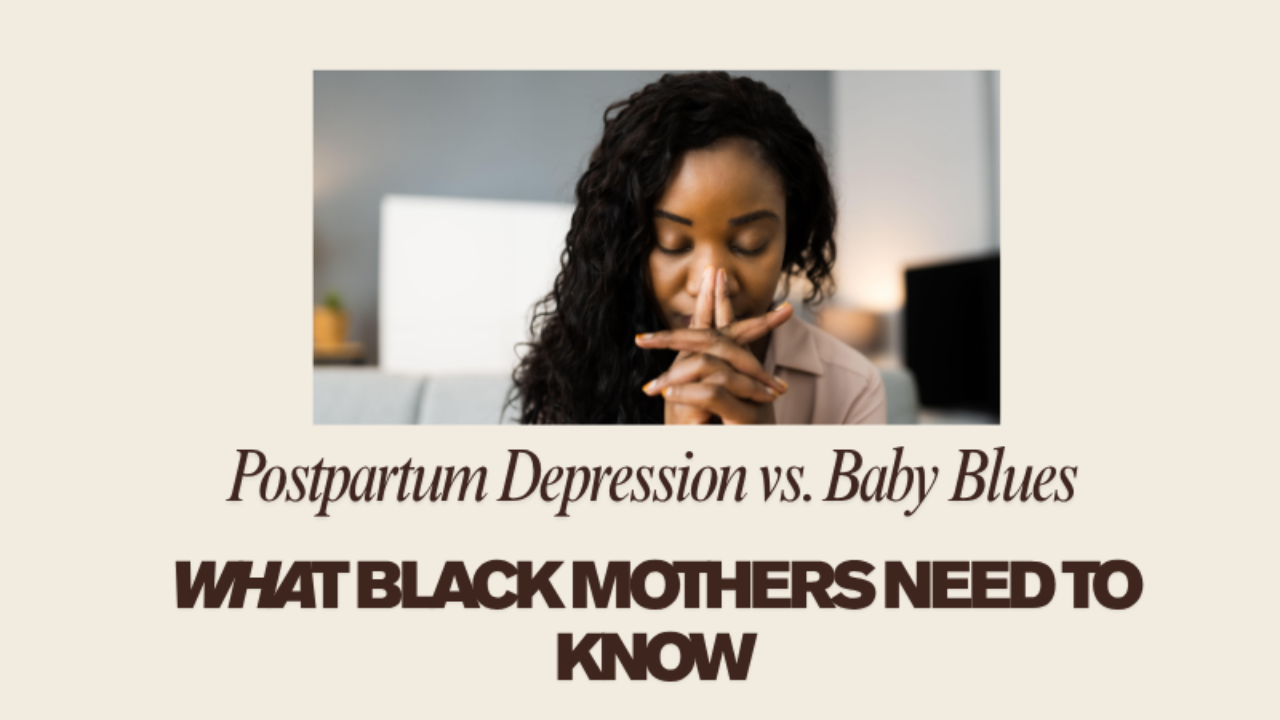Postpartum Depression vs. Baby Blues: What Black Mothers Need to Know
Sep 30, 2025
Postpartum Depression vs. Baby Blues: What Black Mothers Need to Know
Bringing a new life into the world is both beautiful and overwhelming. For many mothers, those first few weeks come with powerful emotions—joy, fear, exhaustion, and sometimes sadness. It’s important to know the difference between what’s often called the baby blues and postpartum depression (PPD), especially for Black women who may face unique cultural pressures and barriers when seeking support.
The Baby Blues
-
What it is: A very common, short-term emotional shift after childbirth.
-
When it happens: Usually starts a few days after delivery and can last up to two weeks.
-
Symptoms: Mood swings, crying spells, feeling anxious or irritable, difficulty sleeping—even when the baby sleeps.
-
Why it happens: Rapid hormone changes, recovery from childbirth, lack of sleep, and adjusting to motherhood.
-
What helps: Rest, support from loved ones, asking for help with meals or chores, and talking openly about your feelings.
Postpartum Depression (PPD)
-
What it is: A more serious mood disorder that goes beyond the baby blues.
-
When it happens: Can begin any time during the first year after birth.
-
Symptoms: Intense sadness, hopelessness, withdrawal from loved ones, feeling disconnected from your baby, loss of interest in things you used to enjoy, or even scary thoughts of harm.
-
Why it happens: A mix of hormonal, emotional, and social factors. For Black mothers, stressors such as lack of culturally competent healthcare, stigma, or feeling pressure to “stay strong” can increase risk.
-
What helps: Professional treatment (therapy, support groups, sometimes medication), leaning on trusted friends and family, and giving yourself permission to rest and heal.
Why This Conversation Matters for Black Mothers
-
Stigma: Many of us were taught to push through, but silence only makes healing harder.
-
Representation: Studies show Black women are less likely to be screened or treated for PPD, even though we experience it at similar or higher rates.
-
Community care: Talking about mental health within our circles helps break generational patterns of suffering in silence.
Takeaway
If your sadness lasts longer than two weeks, feels heavy, or keeps you from bonding with your baby, it may be more than the baby blues. Reaching out for help is not weakness—it’s strength. Postpartum healing is not just physical; your mind and spirit deserve care too.
✨ You are not alone, sis. Whether you’re feeling the baby blues or struggling with postpartum depression, your feelings are real and worthy of support. Speak with a healthcare provider you trust, and lean into your community—you don’t have to carry this by yourself.
Lorem ipsum dolor sit amet, consectetur adipiscing elit. Cras sed sapien quam. Sed dapibus est id enim facilisis, at posuere turpis adipiscing. Quisque sit amet dui dui.
Stay connected with news and updates!
Join our mailing list to receive the latest news and updates from our team.
Don't worry, your information will not be shared.
We hate SPAM. We will never sell your information, for any reason.
